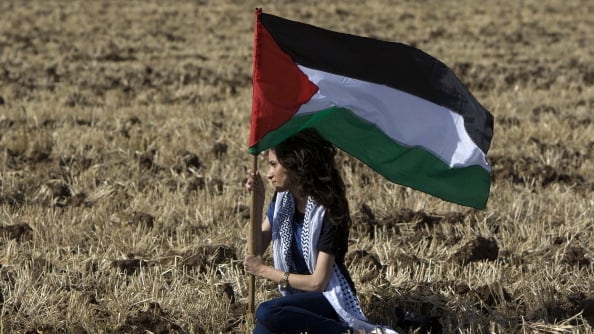Danny Ayalon, Israel’s Deputy Foreign Minister, has a new pet project. His campaign—“I Am a Refugee”—encourages Jews from Arab countries to share their family histories online. By getting diplomats to trumpet these family histories at the UN, Ayalon hopes to popularize a simple message: Just as Palestinians were forced to leave their homes after the establishment of the State of Israel, Mizrahi (Arab) Jews were forced to leave their homes in Arab lands. Viewed as members of an enemy state, these Jews saw their citizenship revoked and assets frozen. They endured violent pogroms and massacres. Eventually, 900,000 of them were chased out, and the great Jewish communities of North Africa and the Middle East came to an end.
This all sounds terrible, because it is. But it’s also highly ironic (read: hypocritical) for Israel to bemoan the treatment of Mizrahi Jews “over there,” when Israel itself treated these Jews like second-class citizens for decades after admitting them to the newly established state.

The fact is, Israel’s Ashkenazi (European) elite did not much care for these Jews: they looked like Arabs, spoke like Arabs, and came bearing a “backwards” oriental culture that, it was feared, would infect the fledgling state’s occidental spirit. According to David Ben Gurion, Mizrahi Jews had “no trace of Jewish or human education,” which may explain why they were forced to live in unsanitary tent cities, transition camps, and development towns. There, they were systematically deprived of the socio-economic opportunities afforded their Ashkenazi counterparts, which further entrenched the bias against them. Mocked for their accents and superstitious beliefs, Mizrahi Jews met with an intense prejudice that, in many cases, they are still struggling to overcome.
I should know: my grandparents, who fled Morocco soon after the Jewish state was born, arrived in Israel only to find that it was hardly the land of milk and honey they’d been expecting. They settled in Beit Shemesh, a rugged development town with a large North African immigrant population. Though they clung stubbornly to the markers of their Arab identity, especially their pronunciation of the Hebrew gutturals ayin and het, many of their children and grandchildren would work hard over the coming years to shed the telltale signs of their Mizrahi heritage. (Including yours truly: there’s a reason I spent the better part of my adolescence trying to tame my thick black curls into straight, Ashkenazi-style hair. The curls eventually won out.)
If this is beginning to sound like a discussion of racism, of the attempt to “pass” in a punishingly racist environment, that’s because, well, that’s exactly what we’re dealing with here.
You’d think Ayalon, who is himself a descendant of a family forced out of Algeria, would know all this. You’d think he’d know about the harsh conditions imposed on Mizrahi Jewish refugees in the late 1940’s and early 1950’s, not by Arab states, but by the Jewish state itself. And, of course, he does know this—only he’s not exactly keen on recognizing it. To create a narrative of Jewish suffering that’s got enough pathos to compete with the Palestinian narrative on the international stage, Ayalon must make it seem like the responsibility for Jewish suffering lies with distinctly non-Jewish agents.
Engaging in this kind of competition is the true goal of Ayalon’s “I Am a Refugee” campaign, as he himself suggested at a recent conference. Each of the family histories posted online by Mizrahi Jews are important, he explained, “not just for the sake of memory, but to stand in opposition to the Arab narrative which has been allowed to stand uncontested for too long.”
Ayalon’s next step, which is linked to the broader Israeli effort to redefine Palestinian refugees in Congress, is to get the issue of Jewish refugees placed on the international agenda at the UN later this month. He’s confident that his new pet project will offset the more popular narrative about Palestinian refugees, and undermine “the Palestinian attempts at historic revisionism.” But, faced with Ayalon’s hypocritical, cherry-picking account of the Jewish refugee issue—an account that conveniently elides Israel’s own mistreatment of these refugees, retroactively embracing them now that it suits Israel’s political agenda—the real question is: who will undermine his revisionism?






